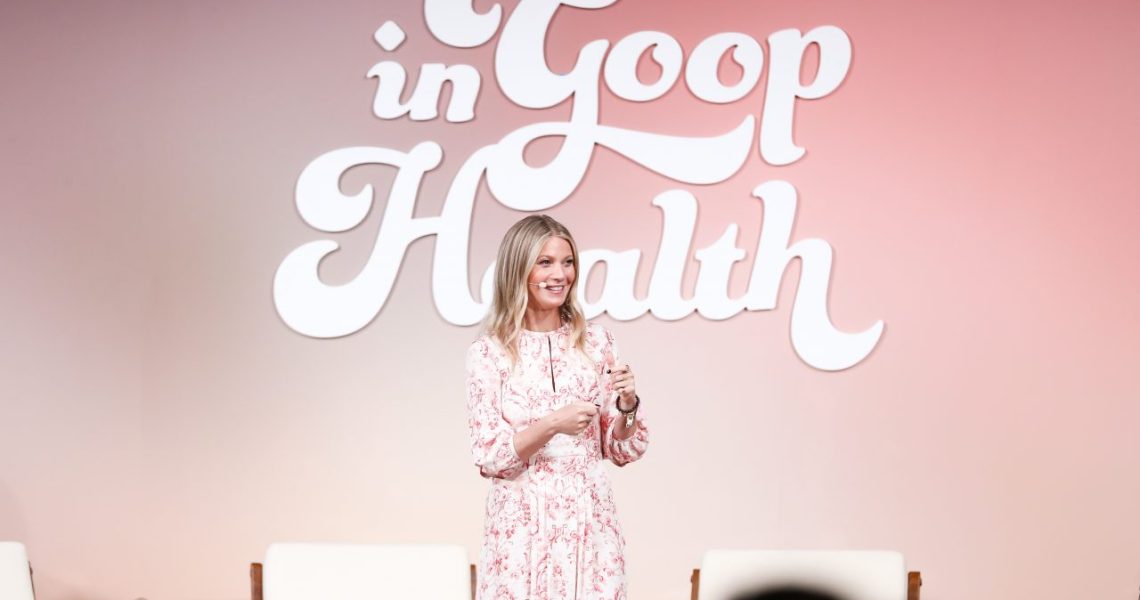When Goop went virtual for its In Goop Health Summit as a result of the Covid-19 pandemic, organizers brainstormed ways to facilitate interactions between participants. They decided to go with something they use every day: Slack.
“We’ve never had an online component to or a strong online community component for any of our events,” said Kiki Koroshetz, Goop’s wellness director of content. “We were thinking, how are we going to build that community feeling?”
Prior to the pandemic, brands had been experimenting with a range of private customer communities through formats including closed Facebook groups or Instagram accounts. With in-person events a no-go for over a year now, brands have gotten more creative. While some have found Slack’s collaborative format to work for B2C features, others are turning to Slack-like messaging apps like Geneva.
The In Goop Health Slack channel was first made available for the company’s first virtual summit in September 2020, with access granted to anyone who purchased any of the ticket tiers ranging from $5 to $250. It was revived for Goop’s second summit that ran from March 6 to April 2, with over 1,100 attendees joining the channel.
Hashtags were set up to facilitate discussions around each event, with Goop editors chiming in to answer questions or recommend products. For Gwyneth Paltrow’s live session at the most recent summit that ended on April 2, participants flooded the chat with questions for the founder. Questions ranged from beauty advice on microneedling and Botox to health topics such as menopause. When users asked about what products Paltrow was using or wearing, editors would chime in with links to purchase.
An entire beauty channel on the event Slack was also dedicated to beauty discussions, with Goop editors answering and providing product recommendations such as Goop’s face oil or its lip balm. At the end of the event, exclusive online discount codes were shared with participants.
Private brand groups are another digital trend accelerated by the pandemic. Brands including Versed, Glossier, Curology, and Glow Recipe were already operating private Facebook groups prior to the pandemic, and Glow Recipe was also operating its closed “Glow Gang” Instagram account. Glossier had city-specific Slack channels for customers in the past. Goop had also been hosting a private book club Facebook group, but opted for Slack for its events.
Ad position: web_incontent_pos1
Slack’s format “just feels really organized and, especially when you’re doing a program that’s a month long, it allows you to find materials and to go back and search,” said Koroshetz. “That’s all really helpful for a user when you’re working your way through a content program.”
“Covid-19 has created the necessity for brands to digitally transform and stay more closely connected to their customers online, and Slack can be a great place for these groups to come together,” said Ali Rayl, vp of customer experience at Slack via email.
Since Slack is heavily B2B and Facebook is now associated with an older audience, some Gen-Z-focused startups have also been seeking out Slack-like formats on new platforms. Group messaging app Geneva has attracted beauty brands including beauty e-tailer Geenie and sunscreen brand Everyday Humans, both of which have created private customer groups.
Geenie founder Chana Ewing launched the company’s Geneva group after learning about the app from Emmett Shine, a co-founder of Pattern Brands (the parent company of DTC home brands Equal Parts and Open Spaces), who serves as an advisor to Geneva and an investor in Geenie.
“We thought it would be a great place to explore what would be of interest for the community that we’re building, because it offers such a wide set of features,” said Ewing. “It’s great for brands to understand a little bit more about their communities.” Geenie uses the app to develop its community by discussing not only beauty, but also current events.
Ad position: web_incontent_pos2
“We’re not prescriptive about what people can talk about,” said Ewing. “We just enable the safety for them to have the discussions that they want to.”
Currently in beta, Geneva was launched two years ago by Justin Hauser, the co-founder of CBD drink company Recess. It offers Slack-like functionality with more features geared toward social groups, such as events, a posting board and group video chats.

Everyday Humans created a group of 100 customers in Geneva in the summer of 2020, inviting enthusiastic followers that had DMed the brand. “We tried to start on Slack, but Slack is really for work,” said Charlotte Pienaar, founder of Everyday Humans. The brand uses the platform to discuss skin-care advice and behind-the-scenes information about Everyday Humans. “It’s really hard to build a community to get people talking on Slack. And Facebook Messenger is a bit dorky. It was really easy for me to bring people [here] over trying to get people on Slack. We just tried different things, and this one’s the one that stuck.”
Geneva has multiple active beauty brands and social beauty communities on the platform, according to a spokesperson for the app. It is currently developing more features, and offering e-commerce is being considered.

Shine noted that the format of Geneva caters to the Gen Z demand to join a “smaller, tighter-knit group of individuals that are a part of something,” as opposed to the “constant need to impress in a presented way that is Instagram.”
“The word ‘community’ is being bandied about a lot right now,” said Ewing. “Everyone’s talking about community. But there’s a real difference between building out social networking tools, or building out a blog, and creating a thoughtful, moderated space and ensuring safety into that space, so that people can have all sorts of conversations. A community has shared values. It’s a place where people can expect to be thought of and cared for.”




